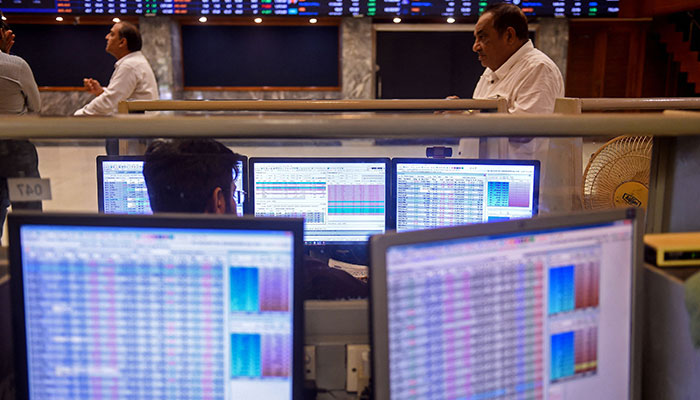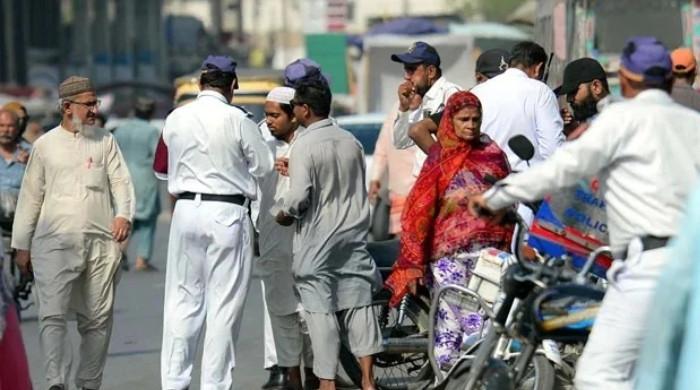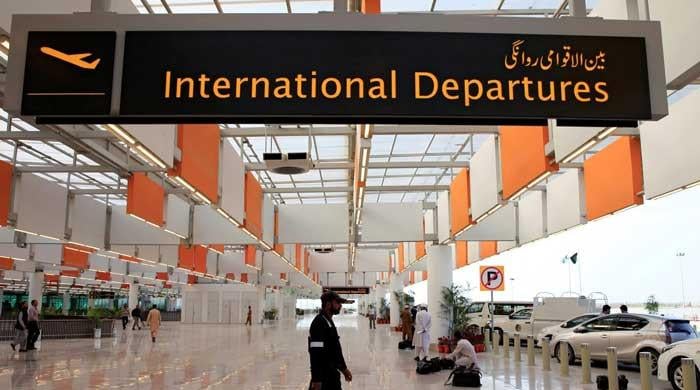Stocks barrel ahead but late selling cuts post-budget rally short
Analyst says market rebounded sharply since budget as feared increase in CGT did not come through
June 14, 2024

KARACHI: Stocks broadened the post-budget rally on Friday testing a new record high of above 77,000 as the buying spree triggered by Capital Gains Tax (CGT) hold in the Budget FY25 stuck on hopes of an economic turnaround and International Monetary Fund (IMF) bailout, traders said.
However, late profit-selling pared nearly half of the early gains.
The benchmark KSE-100 shares index surged 498.61 points or 0.65% to close at a record 76,706.7 points.
Earlier, the apex index crossed the 77,000 mark by gaining more than 1,000 points during intraday trading.
At midday, KSE-100 reached an all-time high of 77,213.31, up by 1,005.15 or 1.32% from yesterday's close of 76,208.16 points.
Intermarket Securities Director of Research Saad Ali, while speaking to Geo.tv, said that the market has rebounded sharply since the announcement of the budget 2024-25 as the feared increase in Capital Gains Tax (CGT) did not come through.
Moreover, the expectations of a revival of talks with the IMF for a new programme have resurfaced which is attributed to the market reacting positively, he added.
A day earlier, the stock market reached an all-time high of 76,208.16 points, showing an unprecedented giant leap of 3,410.73 points or 4.69%.
"The market was expecting an increase in capital gains tax and so investors had reduced exposure significantly," Adnan Sheikh, assistant vice president of Pak Kuwait Investment Co told Reuters.
The budget aims for a modest 3.6% growth, a move seen as a delicate balancing act to satisfy the IMF while addressing the nation's fiscal challenges with heightened taxation.
It's been designed to strengthen the case for a new bailout deal from the IMF, as Pakistan seeks an estimated loan ranging from $6 billion to $8 billion, to avert default in an economy growing at the region's slowest pace.









